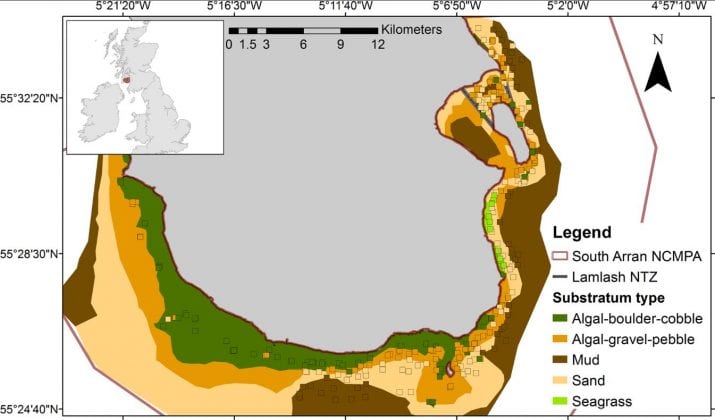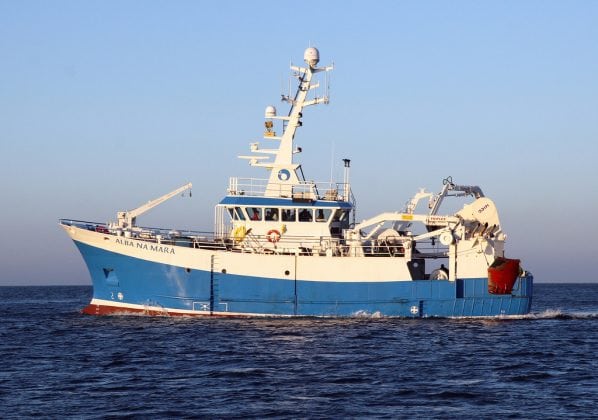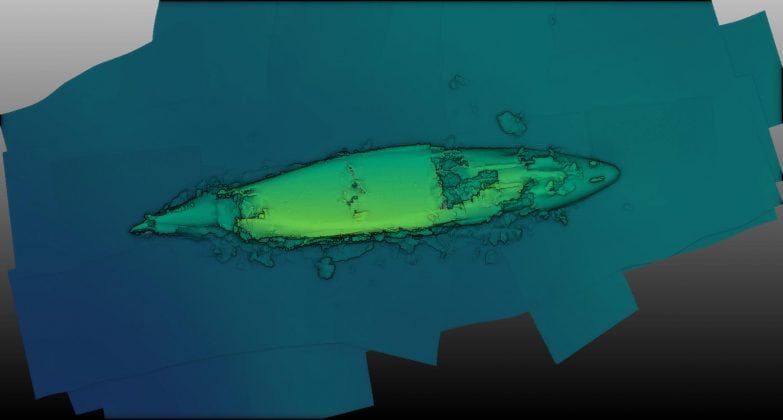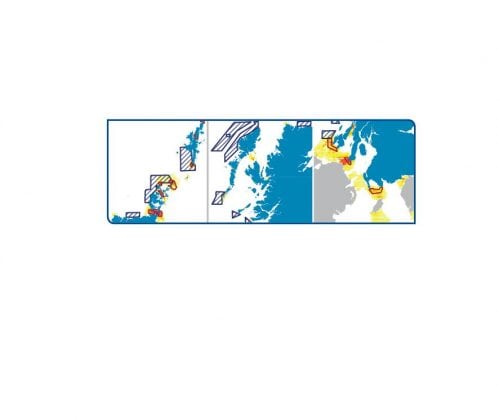Marine
-
Where are the seals around the UK?
21st December 2017 by Marine Scotland Communications
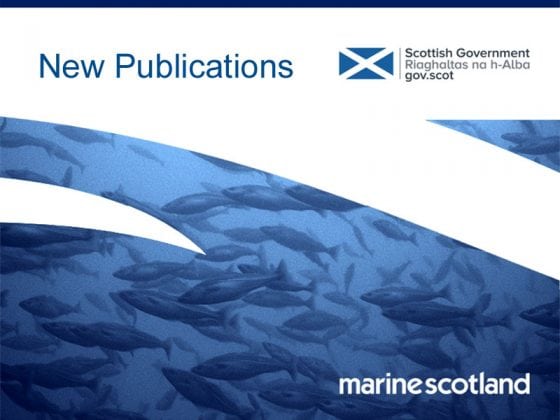
Today, Marine Scotland published a new report in the Scottish Marine and Freshwater Science series on research commissioned from the Sea Mammal Research Unit (SMRU) to produce updated maps of grey and harbour seal distribution in UK waters. Using a combination of telemetry data from seal tags between 1991 and 2016, and haul out counts of...
-
Improvements in detecting toxic phytoplankton
18th December 2017 by Marine Scotland Communications

A new report has been published in the Scottish Marine and Freshwater Science series which details the findings from a new study on toxic phytoplankton. Toxic phytoplankton are a potential threat to the aquaculture industry because of the risk of food product contamination. Shellfish such as mussels for example can accumulate those toxins and become...
-
A new study shows that the seabed landscape crucial for fish conservation
12th December 2017 by Marine Scotland Communications

A new study, led by the University of Glasgow in collaboration with the University of Strathclyde and Marine Scotland Science and that is published in PLOS ONE, demonstrates the importance of protecting different seabed landscapes in order to maintain a healthy and diverse stock of fish, including cod, haddock and whiting. Currently nature conservation and...
-
The power of MRSea
4th December 2017 by Marine Scotland Communications

Renewable energy from offshore wind, wave and tidal stream developments is a key component of the Scottish Governments’ ambitions for creating a low carbon economy that contributes to action on climate change. However, concern exists over the potential for such marine developments to negatively impact seabirds, marine mammals, and other protected species or habitats. A...
-
Understanding how seals use the water column in tidally energetic areas
30th November 2017 by Marine Scotland Communications

As the tidal renewable industry continues to grow, increasing our understanding of the way that marine mammals use tidally energetic areas is of particular importance. This is a particular issue as there is increasing evidence that tidal energetic areas can be important foraging areas for marine mammals, therefore understanding how marine mammals use the water...
-
Hearing things with COMPASS
29th November 2017 by Marine Directorate Communications

On November 6th the Alba na Mara set sail once more to deploy acoustic listening devices in the west coast of Scotland. A total of six moorings containing broadband sound recording devices and cetacean echolocation “click detectors” were to be deployed during the trip. The map below gives the planned locations for deployment. These deployments...
-
New paper on amoeba studies published
27th November 2017 by Marine Scotland Communications
A new scientific journal article written by researchers at Marine Scotland Science (MSS), in collaboration with the Scottish Fish Immunology Research Centre (SFIRC) at the University of Aberdeen, has been published in the Journal of Fish Diseases. The principal author, Rachel Chance, is a PhD. student funded by the National Centre for the Replacement, Refinement...
-
Recognising the Marine Heritage of Scapa Flow
17th November 2017 by Marine Scotland Communications

Earlier this year, we were involved with a joint project to survey the German High Seas Fleet in Scapa Flow, Orkney. Historic Environment Scotland is now reviewing the protection of these wrecks of as they are scheduled monuments, and they would like to explore if that continues to be the best way of recognising and protecting...
-
Maximising the benefits of future large scale tidal and wave energy developments
3rd November 2017 by Marine Scotland Communications

Marine renewable energy is an important component of the Scottish Government’s vision for the future and will help the government reach its climate change objectives. In response to this, a three-year project, EcoWatt2050, was created to investigate how we can ensure that the benefits of future large scale tidal and wave energy developments can be...
-
Getting a good grounding with the Northeast Atlantic
1st November 2017 by Marine Scotland Communications
Marine Scotland Science has just released new Groundfish Survey Monitoring and Assessment data for the Northeast Atlantic Area, which includes fish abundance and biomass at length information for all the species caught during the surveys (details in the table below). With growing interest in understanding, assessing and managing the ecosystem in a more holistic way, having reliable...

